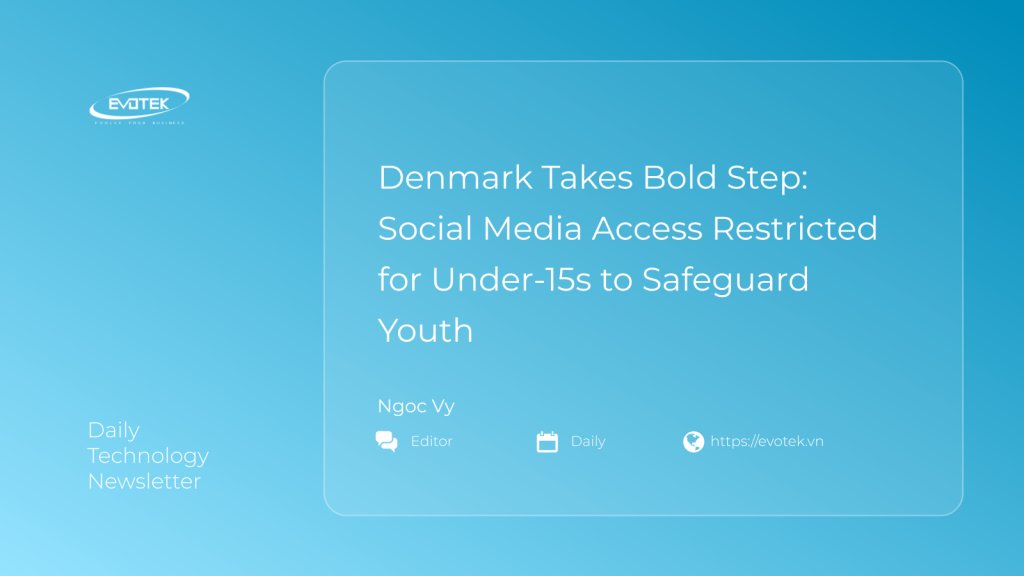Copenhagen, Denmark – In a landmark decision, Denmark is set to implement a nationwide minimum age of 15 for accessing social media platforms. This significant legislative move, backed by a strong majority in the Danish parliament, aims to protect children and young people from the escalating challenges of the digital world.
The government’s announcement on Friday positions Denmark as a leading European nation in tackling the complex issue of youth digital wellbeing. While specific platforms impacted and enforcement details are still pending, the government previously highlighted Snapchat, YouTube, Instagram, and TikTok as popular services among Danish youth.
Addressing Youth Mental Health Concerns
The initiative gains momentum from Prime Minister Mette Frederiksen’s recent address to Parliament, where she voiced urgent concerns regarding social media’s impact on children’s mental health. Echoing this sentiment, the digitalization ministry declared, “As one of the first countries in the EU, Denmark is now taking a groundbreaking step towards introducing age limits on social media.”
The core principle guiding this policy is straightforward: “As a starting point, children under the age of 15 should not have access to platforms that may expose them to harmful content or harmful features,” the ministry stated.
Parental Consent and Comprehensive Digital Initiatives
Notably, the new legislation will include provisions for parental consent, allowing children as young as 13 to access social media platforms if their parents grant explicit permission.
Beyond the age restriction, the agreement allocates a substantial 160 million Danish kroner (approximately €21.4 million or $24.8 million) towards 14 comprehensive initiatives. These programs are designed to:
- Strengthen online safety for young people.
- Improve their overall digital environment.
- Enhance supervision under the EU’s Digital Services Act.
- Support the development of alternative, safer social media platforms.
- Intensify efforts to combat illegal marketing practices by influencers.
Lawmakers emphasized their commitment, stating that “children should not be left alone in a digital world where harmful content and commercial interests are too much a part of shaping their everyday lives and childhoods.”
“Children and young people have their sleep disrupted, lose their peace and concentration, and experience increasing pressure from digital relationships where adults are not always present,” the ministry elaborated, underscoring that “this is a development that no parent, teacher or educator can stop alone.”
Digitalization Minister Caroline Stage affirmed, “Denmark is now leading the way in Europe with a national age limit for social media and a concerted effort to strengthen the digital wellbeing of children and young people. We are taking a necessary stand against a development where large tech platforms have had free rein in children’s rooms for far too long.”
Following Australia’s Lead: A Global Trend
Denmark’s proactive stance aligns with a growing international movement to safeguard youth online. Australia is set to become the first country globally to implement a social media ban for children, establishing a minimum age of 16 in December.
European Commission President Ursula von der Leyen has previously expressed inspiration from Australia’s “common sense” approach. Australia’s legislation imposes significant fines of up to 50 million Australian dollars (approximately €30 million or $32.3 million) on platforms that fail to prevent children under 16 from creating accounts.
Australian Communications Minister Anika Wells recently confirmed that major platforms, including Facebook, Instagram, Snapchat, Threads, TikTok, X, YouTube, Reddit, and Kick, are all subject to this world-first legal obligation to deactivate accounts belonging to underage users by December 10.

 日本語
日本語 한국어
한국어 Tiếng Việt
Tiếng Việt 简体中文
简体中文